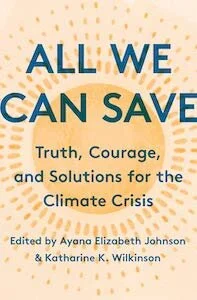21 Books for Your 2021 Reading List: The Celestial Citizen Guide
Excited to embrace a new year but still in quarantine? Fear not, here is the definitive 2021 reading guide to frame your year off right despite the familiar view of your living room. Since this is the first year doing this, I’m including a fair bit that I’ve already read but also what has been curated for my nightstand library for the year ahead.
EARTH
1. All We Can Save: Truth, Courage, and Solutions for the Climate Crisis edited by Ayana Elizabeth Johnson and Katharine K. Wilkinson
A collection of essays and poems written by women on the front lines of the climate movement, that will undoubtedly offer a unique and nuanced perspective on how humanity moves forward in this crisis. Looking forward to what I’m hoping will be an instructive and hopeful call to action.
2. Who Should Own Natural Resources? by Margaret Moore
I live for those a-ha moments when you read something from a different discipline but it is completely relevant to your interests. This book offers some great discussion on the conflicts and politics that arise from use of natural resources on Earth. For those in the space resources field, or fields dependent on the use of space resources for future missions this book provides a great outsider perspective as we think about distributive justice in space.
3. The Future Earth by Eric Holthaus
Journalist, Eric Holthaus, offers an encouraging vision of the future in his book that discusses the possible choices that humanity is faced with and how positive, collective action at scale can lead to greater climate and social justice. I’m intrigued to see how Holthaus advocates for greater connection to a shared planet and humanity – a sentiment that aligns with the mission of Celestial Citizen!
4. The City of Tomorrow: Sensors, Networks, Hackers, and the Future of Urban Life by Carlo Ratti and Matthew Claudel
I am absolutely obsessed with this book (small but mighty). It is a quick read and for anyone that loves to think about the way cities function and how they might look in the future. Although specifically about Earth cities of the future, many concepts from this work can be extended to the celestial stage as well. And for all you urban planners out there, this is certainly a must-read!
5. The Well-Tempered City: What Modern Science, Ancient Civilizations, and Human Nature Teach Us About the Future of Urban Life by Jonathan F.P. Rose
I feel like the title is probably pretty self-explanatory here but I’m super interested to get familiar with Rose’s five-prong model for designing cities – especially given his emphasis on interdisciplinary research. Looking forward to reading more about his vision for future cities as informed by greater attention to equality, resilience, and adaptability.
MOON
1. Spacesuit: Fashioning Apollo by Nicholas de Monchaux
I talk about this book at some length in my Space Urban Planning: Part II post, so I’ll keep it brief here. This book is an incredibly interesting and informative read, and a go-to for anyone interested in brushing up their Apollo-era knowledge. Also, a treat for the design-minded individual with an amazing collection of photographs.
2. Artemis by Andy Weir
I’m assuming that a lot of folks who found themselves on this particular webpage will probably have already read this one, but we can’t really talk about a future city on the Moon and not discuss Artemis. If you haven’t already read it, you will not be disappointed - it packs the same comedic punch and commitment to getting the science and tech right that Weir’s earlier work, The Martian, does.
3. The Moon: A History for the Future by Oliver Morton
Part history lesson, part eye to the future. Journalist, Oliver Morton, discusses the ways in which society’s perception of our home planet has been altered by our relationship with the Moon and what that means for a return of human presence to the Moon in the near future.
4. Moon Rush: The New Space Race by Leonard David
Veteran space journalist, Leonard David, outlines quite succinctly the historical context for lunar exploration and the cutting-edge science and technology that has revolutionized the way that we think about future plans for the Moon. This was a very entertaining and spirited read – I would highly recommend to anyone who wants a quick primer on the latest in present and planned lunar activities.
MARS
1. The Sirens of Mars: Searching for Life on Another World by Sarah Stewart Johnson
Assistant professor of planetary science at Georgetown University, former Rhodes Scholar and White House Fellow, and visiting scientist with the Planetary Environments Laboratory at NASA’s Goddard Space Flight Center, Dr. Sarah Stewart Johnson, provides a detailed personal account of her passion for uncovering the mysteries of the red planet while also sharing the stories of other researchers that have similarly devoted their professional careers to searching for signs of life on Mars.
2. Once Upon a Time I Lived on Mars by Kate Greene
Author, Kate Green, describes her four month simulated Mars mission as part of the HI-SEAS program located on Mauna Loa in Hawai’i and offers insight into the crew dynamics, feelings of isolation, and human thirst for exploration. If you were a fan of The Habitat podcast, then this will surely capture your interest as well.
BEYOND
1. The Human Cosmos: Civilization and the Stars by Jo Marchant
Science journalist, Jo Marchant, takes a deeply researched look into how humanity’s relationship with the night sky has had dramatic influence over society’s culture, politics, religion, and human biology. Eager to start this one!
2. Afrofuturism: The World of Black Sci-Fi and Fantasy Culture by Ytasha L. Womack
A terrific primer on the genre of Afrofuturism from filmmaker, futurist, and author Ytasha L. Womack. In her own words, “Afrofuturism is a great tool for wielding the imagination for personal change and societal growth. Empowering people to see themselves and their ideas in the future gives rise to innovators and free thinkers, all of whom can pull from the best of the past while navigating the sea of possibilities to create communities, culture, and a new, balanced world.” Looking forward to reading this! Also, check out Womack’s Rayla Series (Rayla 2212 and 2213) which follow the travels and adventures of Rayla Illmatic, a citizen of Planet Hope which recently gained independence from the colonial rule of Earth and combines themes of reincarnation, space travel, and virtual worlds.
3. The Last Stargazers: The Enduring Story of Astronomy's Vanishing Explorers by Emily Levesque
An Amazon Best Book of the Year Winner for 2020. Astronomer and assistant professor at the University of Washington, Levesque writes “a love letter to astronomy and an affirmation of the crucial role that humans can and must play in the future of scientific discovery.” And I am here for it.
4. The Future of Humanity: Our Destiny in the Universe by Michio Kaku
If you’ve read Michio Kaku before, then you know how intoxicating his books are as they lay out a future filled with captivating new technologies innovations, and potential visions of how society will be changed by them. I read this in nearly one pass – don’t sleep on this one.
5. Beyond: Our Future in Space by Chris Impey
This book came out a few years back, but I had to include it because it was such an eye-opening and easily digested view of what humanity’s future in space could look like. It served as a major source of inspiration to me when I was deciding to pivot careers and I think it will appeal to a very broad audience - hopefully inspiring many others to consider what life will entail with the Cosmos as our backdrop.
6. Spacefarers: How Humans Will Settle the Moon, Mars, and Beyond by Christopher Wanjek
In this book, Wanjek addresses what will be required for humans to become a multiplanetary species considering the numerous technical, economic, legal and psychological hurdles we will have to overcome to make that a reality. I’m excited to dive into this one and report back!
7. Delta-V by Daniel Suarez
Given this list is largely non-fiction, I thought I would include the delightful and well-researched Delta-V, which offers an exciting and fast-paced plot that envisions the first deep space mining operation. Needless to say, this is a fan favorite amongst the graduate students of the Space Resources program at Colorado School of Mines.
SOCIETY & CULTURE
1. For Small Creatures Such as We: Rituals for Finding Meaning in Our Unlikely World by Sasha Sagan
Such a powerful and beautifully written homage to a culture of tradition and celebration. Never has a book like this been more relevant than following a year like 2020. Daughter of Ann Druyan and Carl Sagan, Sasha Sagan’s book will fill you with feelings of appreciation and gratitude for the very spectacular gift of existence in the incomprehensible vastness of the Cosmos.
2. The Smallest Lights in the Universe: A Memoir by Sara Seager
Astronomer, MIT professor, and pioneer in the search for Earth-like exoplanets, Sara Seager’s new memoir tells the story of how she found connection and community on this planet, whilst still searching for life elsewhere, after the tragic loss of her husband to cancer. A personal hero of mine, Dr. Seager’s passion for her work, kindness to newcomers, and dazzling intellect are a rarity to be sure. Can’t wait to read what I’m sure will be a powerful story of human experience.
3. Archaeology from Space: How the Future Shapes Our Past by Sarah Parcak
National Geographic Explorer and TED Prize-winner, Dr. Sarah Parcak, discusses how satellite imagery can be used to make new archaeological discoveries from space – unearthing previously hidden settlements, tombs, roads, and other vestiges of ancient civilizations. I’m truly enticed by this subject matter and what might be extrapolated for future societies.
Think I missed the perfect book for this guide? Let me know and it just might make its way onto this list!
As always, share your voice and comment on Medium or Twitter @CelestialCitzn!
And for updates and the upcoming newsletter, sign up here.





















